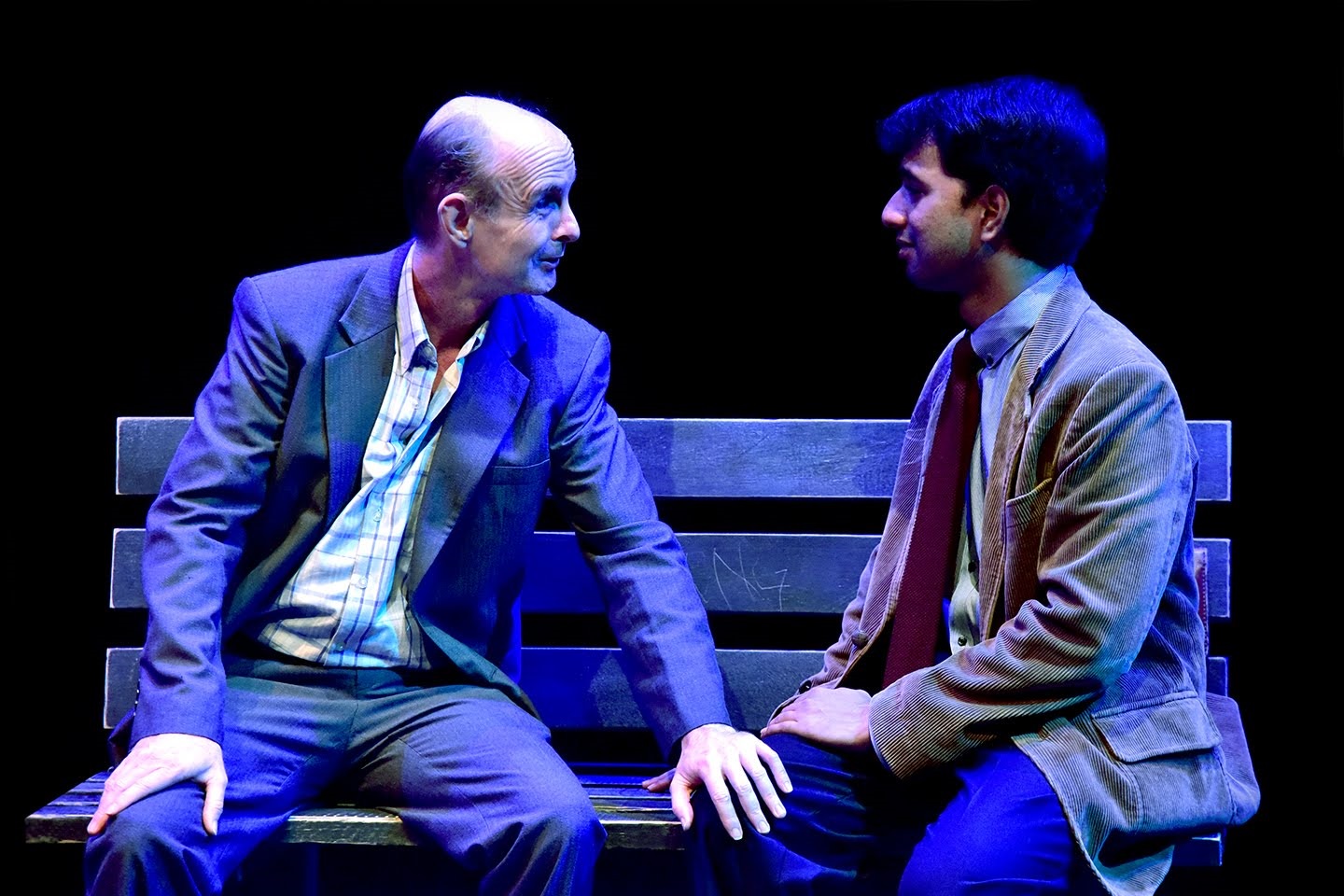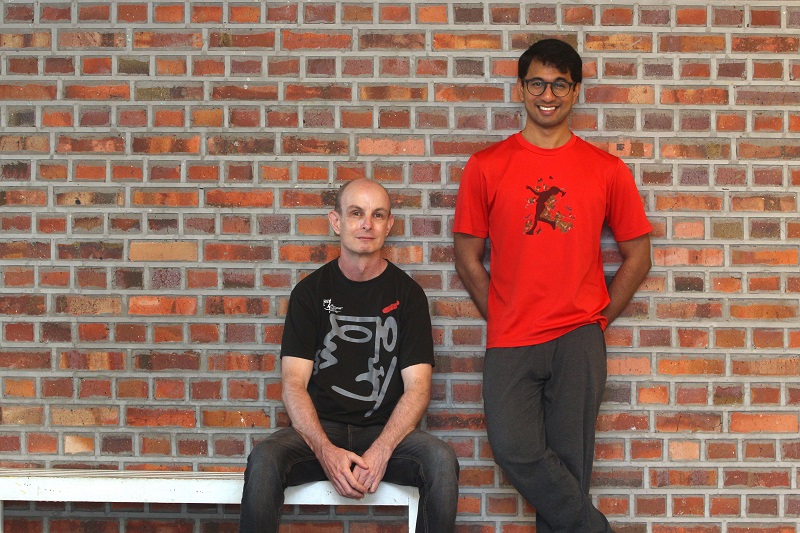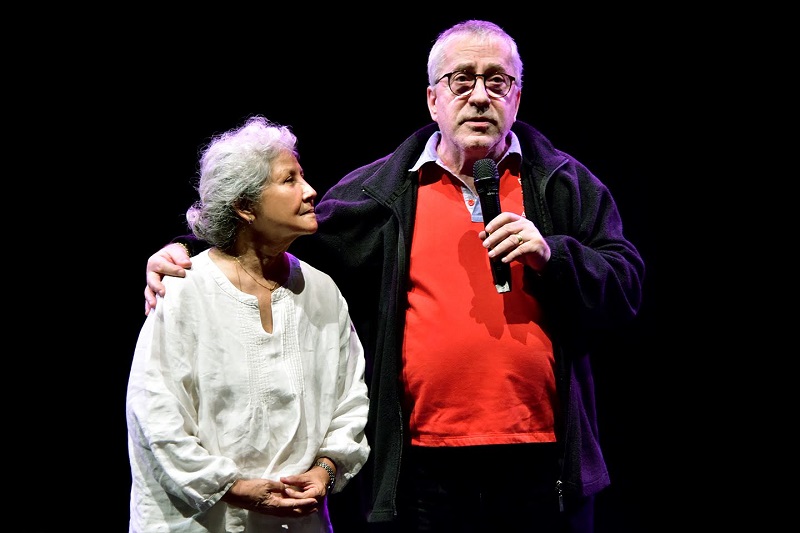
Norm will be played by Australian actor, Kingsley Judd, and Ahmed will be played by Phraveen Arikiah (Photo: klpac)
Thirty years ago, an Australian actor named Joe Hasham — who had moved to Kuala Lumpur to work — staged a short play called Norm & Ahmed. Written by Australian playwright Alex Buzo and having debuted in 1968, the hour-long play was controversial for its time, mainly because of the use of a swear word at the end of a dialogue. It made headlines, got the lead actor arrested and the play was banned in three Australian states.
Here in Malaysia in 1989, the response could not have been more different. So much so that it became the launch pad for The Actors Studio theatre company, with Joe and his wife Datuk Faridah Merican at the helm.
As the company celebrates its 30th anniversary this year, the re-staging of Norm & Ahmed is no doubt particularly nostalgic for the couple, though Joe is wearing only the director’s hat this time around.
One cannot help but wonder if, with its themes of racial discrimination, it would resonate differently today, given the progress of society.
According to Norm & Ahmed 2019’s two lead actors — Phraveen Arikiah and Kingsley Judd — the message of the play, rather unfortunately, remains relevant, particularly in relation to the melting pot that is Australia’s diverse people and Malaysia’s identity as a multiracial country.
The synopsis for Norm & Ahmed is brief: On a deserted street in Sydney late one night, Norm encounters Ahmed, asks him for a light for his cigarette and strikes up a conversation. The story largely plays out in the conversation between the foreign Pakistani student and the white working-class Australian male, who happens to be a war veteran. Indeed, the scenario itself could be a scene out of today’s news.

“At the time the play was written, the White Australia Policy was still partially in effect,” says Judd, who is based in Perth. “It was in the process of being dismantled — that is important to note — and since then Australia has moved ahead and become a much more modern and diverse nation. But in some ways, a lot of things have not changed; race is still a contentious issue in Australia,” he adds, citing a racist attack as recently as last year that was in the news.
Phraveen, who first worked with Joe and Faridah in the 2015 musical Uda & Dara, chimes in, “The play might be 50 years old, but the core issue is still as relatable to me now as it was to Joe back then. That kind of says a lot. The style and language might be from a different time, but the heart of it is still so strong. There is not a moment that you feel, ‘oh, this is so archaic, outdated’.”
He believes the idea of stereotypes is still pertinent today. “What the stereotype is might have changed, but there is still a lot of stereotyping being done, based on the fact that someone is of a specific race or ancestry. It feeds racism because you think someone is going to behave in a certain way just because of their race and, because of that, you think ,‘I shall discriminate against this whole bunch of people’. The play challenges that norm,” says Phraveen.
Interestingly, when it was first staged in Kuala Lumpur, Buzo flew over and attended the show, and he was reportedly amazed by the great response here, remarking to Joe at the time that it felt like he had written an entirely different play.
Of course, with race and religion being such an intrinsic part of Malaysian society, a play like Norm & Ahmed feels familiar, though which character the audience here relates to more readily may be different from an Australian audience. But Buzo’s writing forces us to see and hear two viewpoints side by side, not allowing us to ignore the other even as one opinion may resonate more with each individual.

“Even though it is set in Australia, a lot of it feels familiar. It comes close to home, and a lot happens in that short span of time. The dynamic of age also comes into play. But they discuss their views with one another in a genuine exchange. Like when you’re in a discussion and not an argument,” says Phraveen.
Judd adds, “It is also about introducing their own story, to say, ‘can’t you see where I’m coming from?’ The characters try to find common ground.”
Now part of the high school reading curriculum in Australia, the play is also significant as part of a period in the mid-1960s when a new breed of young Australian playwright, who challenged the established themes and expectations of the day, came to the fore and who, collectively, presented a contemporary Australian voice on stage.
It is one of the reasons Judd is particularly excited to play Norm. “I have done an excerpt before but not the full play. This will be my first time. The last time I was here, I played an Irishman in Someone to Watch Over Me, so it is nice to speak in my own tongue for this. Also I have great respect for Alex Buzo as a writer and his work does not get as much attention as it should, I feel.”
Both agree that there is a certain expectation, given that the original production starring Joe and veteran actor Mustafa Noor has such an important place in Malaysian theatre history. But Judd emphasises that the last thing the director wants is a carbon copy of the first.
“We are quite different actors,” Judd points out, “and that is why Joe is excited about this project.” Phraveen nods. “It is the same staging and yet so fresh and different. There is no obvious evil guy in this, it’s two very real characters.”
For all its seriousness, the play is not sombre and heavy the leads note. “There are a lot of laughs in that culture and age conflict. It travels the whole spectrum,” promises Judd.
“I think that for multicultural societies like Malaysia’s, with people of different ethnicities living together, a story like this will always have its place ... Which is sad, but until that changes, these stories have to be told,” Phraveen says.
Pentas 2, klpac, Jalan Sultan Azlan Shah, Sentul, KL. Feb 12-16, 8.30pm; Feb 17, 3pm. RM65. Click here to purchase tickets.


